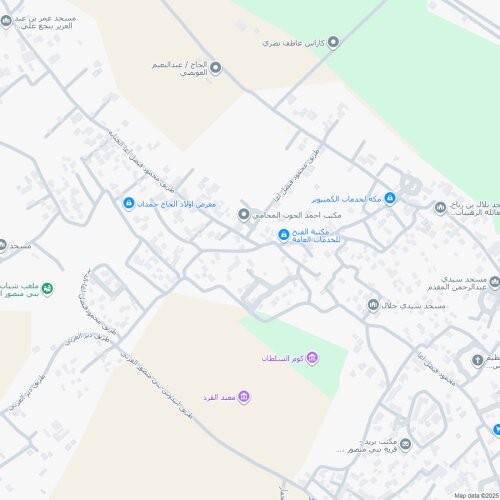Best Child Visitation Lawyers in Cairo
Share your needs with us, get contacted by law firms.
Free. Takes 2 min.
Free Guide to Hiring a Family Lawyer
List of the best lawyers in Cairo, Egypt
About Child Visitation Law in Cairo, Egypt:
Child visitation in Cairo, Egypt refers to the rights of a non-custodial parent to spend time with their child or children. The law aims to ensure that both parents have access to their children unless it is deemed to be in the best interest of the child to restrict visitation. Child visitation laws in Cairo, Egypt seek to promote healthy relationships between parents and children even in cases of separation or divorce.
Why You May Need a Lawyer:
There are several situations where it may be beneficial to seek legal help for child visitation matters in Cairo, Egypt. This includes cases where there is a dispute between parents regarding visitation rights, disagreements over visitation schedules, concerns about the safety of the child during visitation, or when one parent is refusing to comply with a visitation agreement. A lawyer can help navigate the legal system, provide legal advice, and represent your interests in court if necessary.
Local Laws Overview:
In Cairo, Egypt, visitation rights are usually determined based on the best interests of the child. The law recognizes the importance of maintaining a relationship between the non-custodial parent and the child, unless there are valid reasons to restrict visitation. Courts may consider factors such as the child's age, health, living arrangements, and the ability of the parents to provide a safe and nurturing environment.
Frequently Asked Questions:
1. How is visitation rights determined in Cairo, Egypt?
Visitation rights are usually determined based on the best interests of the child, considering factors such as the child's age, health, and living arrangements.
2. Can visitation rights be modified in Cairo, Egypt?
Yes, visitation rights can be modified if there is a significant change in circumstances or if it is in the best interest of the child.
3. What if one parent refuses to comply with the visitation agreement?
If one parent refuses to comply with the visitation agreement, legal action can be taken to enforce the agreement.
4. Can grandparents have visitation rights in Cairo, Egypt?
Grandparents may have visitation rights in certain circumstances, especially if it is in the best interest of the child.
5. Can visitation be supervised in Cairo, Egypt?
Visitation may be supervised if there are concerns about the safety of the child during visitation.
6. How can I enforce my visitation rights in Cairo, Egypt?
You can seek legal assistance to enforce your visitation rights through the court system.
7. What if I want to modify the visitation schedule in Cairo, Egypt?
You can request a modification of the visitation schedule through the court, especially if there is a significant change in circumstances.
8. Can visitation rights be terminated in Cairo, Egypt?
Visitation rights may be terminated in cases where it is not in the best interest of the child or if there are valid reasons to restrict visitation.
9. What if I want to relocate with my child in Cairo, Egypt?
If you want to relocate with your child, you may need permission from the court and the other parent, especially if it will impact visitation arrangements.
10. How can a lawyer help with child visitation matters in Cairo, Egypt?
A lawyer can provide legal advice, represent your interests in court, help enforce visitation rights, and guide you through the legal process.
Additional Resources:
For more information on child visitation laws in Cairo, Egypt, you can contact the Ministry of Social Solidarity or seek guidance from organizations such as the Egyptian Family Court.
Next Steps:
If you need legal assistance with child visitation matters in Cairo, Egypt, it is recommended to consult with a qualified family law attorney who can provide guidance on your rights and options. Be prepared to gather relevant documents, communicate clearly with the other parent, and follow the legal process to ensure the best outcome for you and your child.
Lawzana helps you find the best lawyers and law firms in Cairo through a curated and pre-screened list of qualified legal professionals. Our platform offers rankings and detailed profiles of attorneys and law firms, allowing you to compare based on practice areas, including Child Visitation, experience, and client feedback.
Each profile includes a description of the firm's areas of practice, client reviews, team members and partners, year of establishment, spoken languages, office locations, contact information, social media presence, and any published articles or resources. Most firms on our platform speak English and are experienced in both local and international legal matters.
Get a quote from top-rated law firms in Cairo, Egypt — quickly, securely, and without unnecessary hassle.
Disclaimer:
The information provided on this page is for general informational purposes only and does not constitute legal advice. While we strive to ensure the accuracy and relevance of the content, legal information may change over time, and interpretations of the law can vary. You should always consult with a qualified legal professional for advice specific to your situation.
We disclaim all liability for actions taken or not taken based on the content of this page. If you believe any information is incorrect or outdated, please contact us, and we will review and update it where appropriate.














